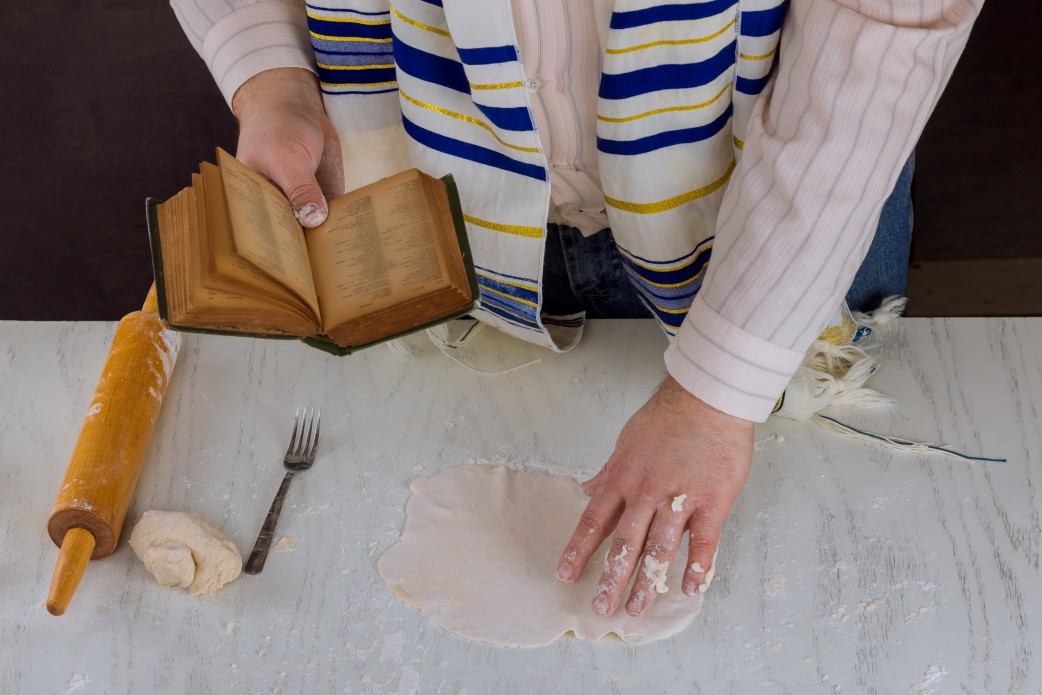Blog April 14, 2022
Jewish Religious Exceptionalism

The Jewish community in the United States has long been exceptional in many respects, from being densely concentrated in urban areas to its notably strong tendencies for political engagement. Jews in America continue to recognize that they are part of a peoplehood, but there is something a bit unusual going on in the Jewish community in terms of religious practice today.
While Jews remain more socio-politically active and have more formal education than the national norm, Jews are concurrently the most religiously disconnected mainstream faith in the nation. That is, despite the existence of a dense network and collection of Jewish religious, social, philanthropic, and civic institutions. Jews do not engage in religious practices and traditions at high rates whatsoever despite being a significant religious group in the American landscape.
Data from the Survey Center on American Life’s new American National Family Life Survey reveals that while Jews heavily embrace cultural traditions such as foodways and festivals, their levels of engagement with conventional forms of religious practice, such as regular worship and religious marriage ceremonies, are much lower than national norms.
From the start, Jewish religious engagement looks very different from that of most Americans. The American National Family Life Survey asks a common and direct measure of religious engagement: Aside from weddings and funerals, how often does one attend religious services? Less than one quarter (24 percent) of Americans overall report that they attend religious services once a week or more often while over half (53 percent) state that they seldom or never attend services. This low attendance is in line with quite a bit of scholarship, which has found that religious service attendance has been rapidly declining in recent years. Attendance figures for the Jewish community look quite different: Just 4 percent claim that they attend services once a week or more while 57 percent report attending religious services seldom or never.
The survey goes deeper, probing respondents about a series of religious activities they may have engaged in when they were growing up. Looking at participation in these formative religious experiences, clearer differences between Jews and other Americans quickly emerge. For instance, 51 percent of Americans report that they attended services with their families on at least a weekly basis. For Jews, the number is much lower at just 21 percent. In contrast, a much higher 64 percent of Protestants report having attended services this often growing up, revealing that growing up around formal worship has been far less salient for Jews than for members of other faiths.
As for reading scripture or sharing religious stories with one’s family, 28 percent of all Americans report having done this at least a few times a month while growing up. And although 41 percent of Protestants report having regularly read religious material with their families growing up, just 12 percent of Jews report having done the same. Sharing religious stories within families is how cultural values and history is transmitted and Jews are exceptionally low here once again.
Relatedly, in terms of saying grace or prayer with family during meals, less than half (49 percent) of Americans report doing this regularly growing up. More than six in 10 (64 percent) Protestants report doing the same. Jews are again outliers here, with just 16 percent reporting that they grew up regularly praying or giving formal thanks before meals.
The data also demonstrate that Jewish Americans are less likely to have religious marriages than other religious Americans are. Just 34 percent of married Jews share that they were been married by a religious leader in a religious setting compared to 46 percent of all married Americans. For Mormons, the number is much higher at 78 percent. Protestants (58 percent) and Catholics (57 percent) are notably higher as well.
Finally, the survey finds that just over a third (36 percent) of Americans today report they are members of a church or a religious organization. Jews are right on the national average at 35 percent but are significantly lower than Mormons (95 percent), Protestants (62 percent), and even Catholics (44 percent).
Without a doubt, these data show that Jews are exceptional as a faith group in the American landscape. Jews today have a unifying set of religious precepts and beliefs, cultural norms, and traditions. They support numerous faith-based institutions, from schools to social service organizations and large numbers celebrate holidays as well as cook and eat traditional foods regularly. Even so, Jews are not particularly religiously engaged by most traditional metrics which opens the question of what it means to be Jewish in America today.
Such a question is not meant to diminish the collective vitality or the values of the Jewish community in America whatsoever. But it is worth delving more deeply into understanding how the American Jewish community views itself and its cultural practices vis-à-vis faith, religious behaviors, and spirituality going forward.








